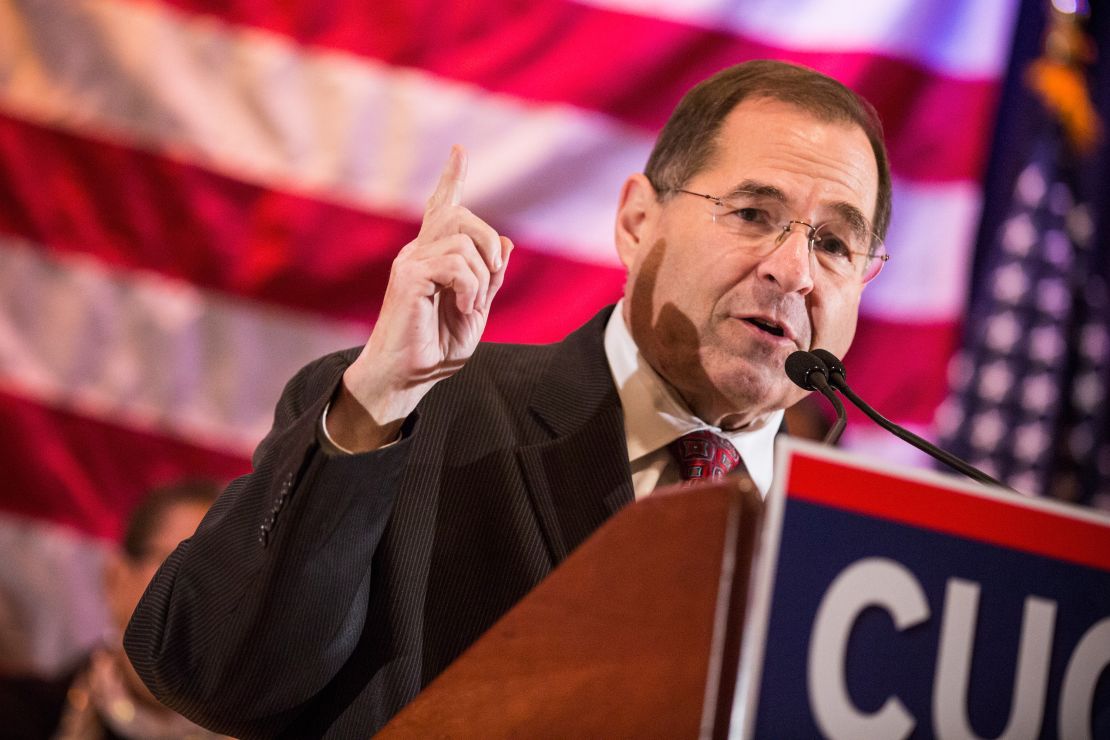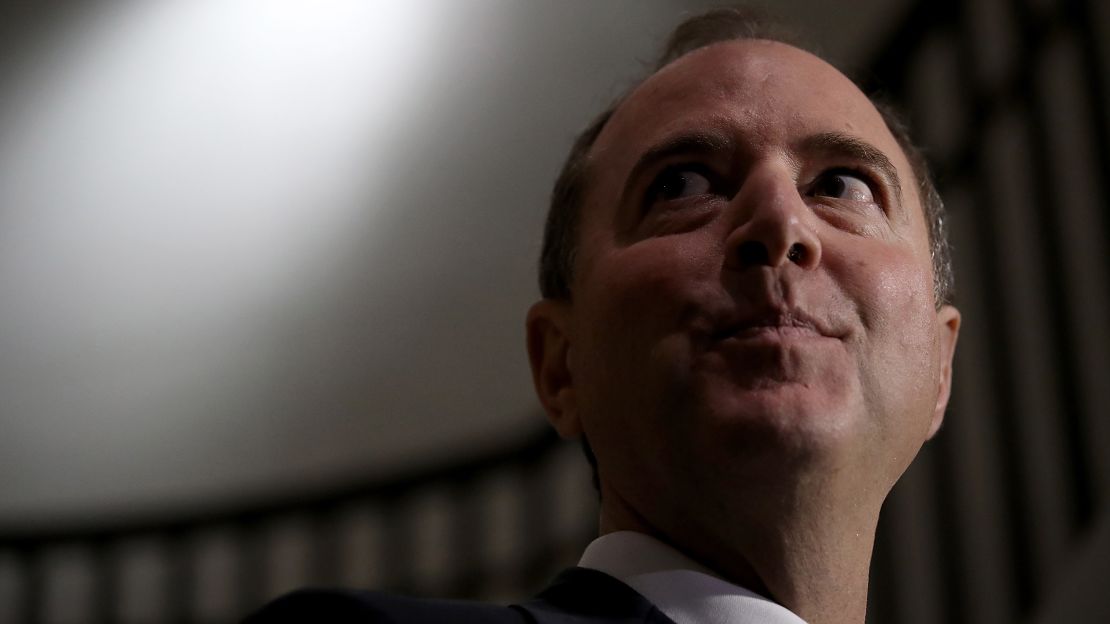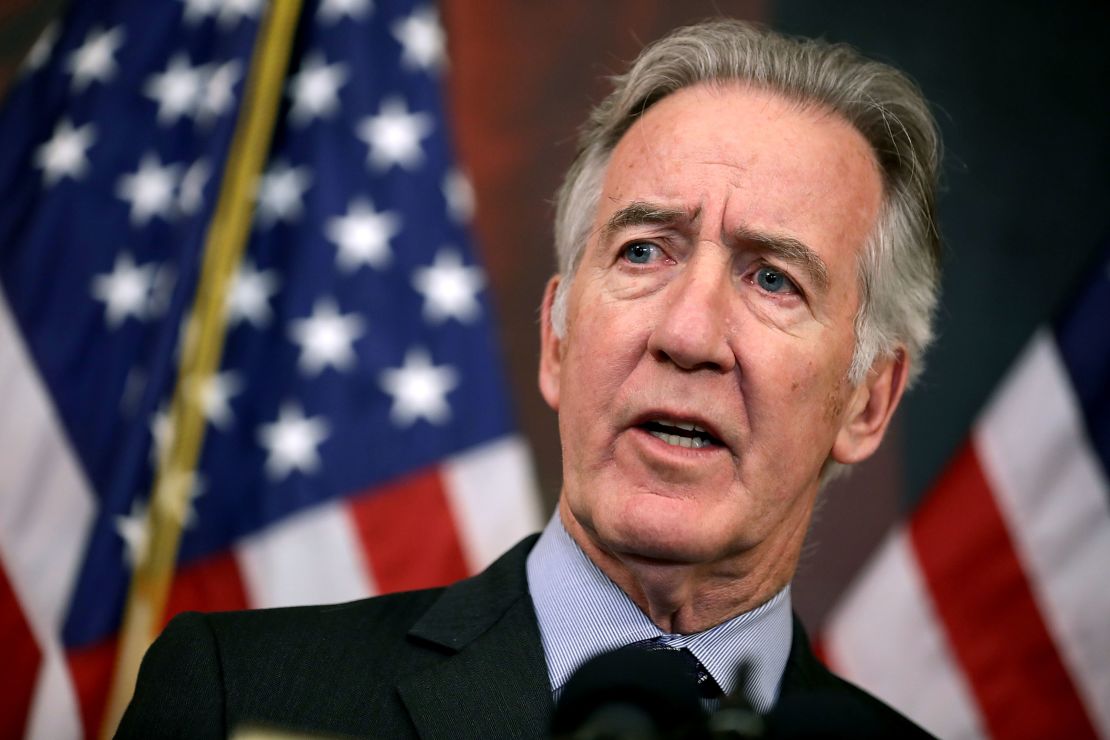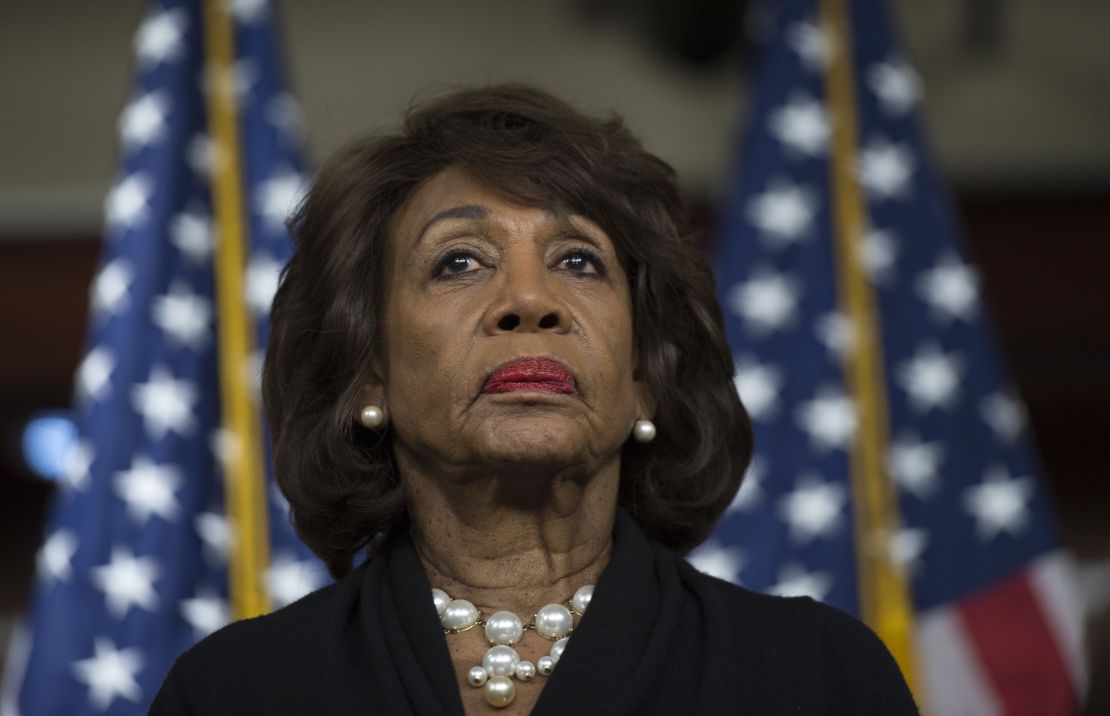President Donald Trump will face an intensified level of scrutiny in the new year, with Democratic House committee chairs poised to comb through every corner of his administration, subpoena his Cabinet and investigate his personal finances, associates and business interests.
While Trump has directed his political attacks at Democratic leaders like Nancy Pelosi, it’s the committee chairs who will soon become his greatest foes.
The President – no stranger to name calling or political swipes – has already begun jabbing some of the incoming chairs on Twitter over the past two years, and he has decades of history with one of the new leaders. But despite Trump’s declarations that he’s prepared to play hardball with the Democratic investigators, there’s a new crew of Democrats in Washington – rising from the party’s return to the majority in the House of Representatives – who have subpoena power and are prepared to use it.
“If the Democrats think they are going to waste Taxpayer Money investigating us at the House level, then we will likewise be forced to consider investigating them for all of the leaks of Classified Information, and much else, at the Senate level. Two can play that game!” Trump tweeted the day after this fall’s midterm elections.
Meet the five chairs most likely to battle the President next year:

Jerry Nadler
Trump’s history with Rep. Jerry Nadler of New York dates to the 1980s, when they battled over Manhattan real estate while Nadler was in the New York State Assembly before he was elected to Congress. In his 2000 book, “The America We Deserve,” Trump called Nadler “one of the most egregious hacks in contemporary politics.”
“This guy wanted to put a railroad yard on the same property where I wanted to build a park and create the best middle-income housing in New York,” Trump wrote in his book.
Now Nadler is set to lead the Judiciary Committee, which would put him in charge of any Democratic impeachment effort. His committee will also be in charge of handling a report from special counsel Robert Mueller and any fights that may arise about making it public.
Nadler’s committee also has jurisdiction over Trump’s signature issue: immigration, an area Nadler is poised to conduct rigorous oversight on – from family separation to changes to asylum laws – in the new Congress.
Nadler has said it’s too soon to talk impeachment, even though there’s a sizable chunk of Democratic advocates – not to mention some House lawmakers – who already want to move forward.
That doesn’t mean Nadler has avoided the “I” word altogether.
Asked on CNN’s “State of the Union” earlier this month about Trump being implicated in Michael Cohen’s crimes of paying women for their silence during the campaign, Nadler said: “They would be impeachable offenses.”
But he said pursing impeachment is a different question.
“You don’t necessarily launch an impeachment against the President because he committed an impeachable offense,” Nadler said. “There are several things you have to look at.”
If Democrats do to try to impeach Trump, Nadler will be one of the most important Democrats in the caucus – and will likely face the breadth of Trump’s backlash.

Adam Schiff
Rep. Adam Schiff, the incoming chairman of the House Intelligence Committee, is no stranger to Trump’s Twitter tongue lashings. As the top Democrat on the Republican-led House Russia investigation in 2017 and 2018, Schiff was a constant television presence breaking down the newest revelations about Russia and Trump’s team.
The President has used multiple nicknames on Twitter for the California Democrat – Sleazy Adam Schiff, Liddle’ Adam Schiff and most recently “little Adam Schitt” – a sign of his prominence among Trump’s Democratic critics.
Schiff has accused Republicans of failing to investigate the ties between Trump’s team and Russia, and he’s promised to restart his committee’s Russia investigation in several areas.
Among them: Schiff wants to investigate questions about Russian money laundering, to learn who Donald Trump Jr. was calling as he set up the June 2016 Trump Tower meeting and to interview officials the committee has yet to speak to, like Michael Flynn.
Schiff is a soft-spoken lawmaker, but he’s shown a willingness provide headline-grabbing quotes.
“There’s a very real prospect that on the day Donald Trump leaves office the Justice Department may indict him, that he may be the first President in quite some time to face the real prospect of jail time,” Schiff said earlier this month on CBS’ “Face the Nation.”

Richard Neal
In the new Congress it will be Rep. Richard Neal of Massachusetts, a deal-focused Democrat, who will have the job of asking for Trump’s tax returns. While modern presidential nominees have publicly released their returns, Trump has defied the norm, which Democrats argue must be remedied.
Under IRS rules, there are only three people on Capitol Hill who can ask the Treasury Department for the President’s tax returns: the chairman of the Senate Finance Committee, the head of the Joint Committee on Taxation and the chairman of the House Ways and Means Committee. Neal is the only Democrat.
While Neal has said he wants to ensure that requesting the returns doesn’t distract from his committee’s work on infrastructure, health care and oversight of the GOP’s tax bill, a source close to the process told CNN that Neal has largely given up hope that Trump will turn over his tax returns willingly, given comments from the President’s allies. Trump’s lawyer Rudy Giuliani told CNN that the President would be prepared to fight in court over any formal request.
The source familiar with the process told CNN that Neal is prepared to ask the Treasury Department for the returns in the new year. When exactly he would do it is still under discussion.
Trump’s tax returns aren’t of interest just to Neal, however. Other incoming committee chairs have said the information within the returns could advance their own oversight.
“I think there’s a lot of information in them that would be of interest to my committee. For example, we’d like to know exactly what … has been the sources of income for this President,” said Rep. Elijah Cummings of Maryland, the expected chair of the House Oversight and Government Reform Committee.
Cummings continued, “He’s made all kinds of claims that he doesn’t have relationships with Russia. He told us he didn’t have any relationships with Russia, we come to find out that’s not accurate. So there’ve been a lot of allegations, but I think the tax returns where he has to swear that the information is accurate, that would tell us a lot.”
Elijah Cummings
After nearly a decade in the minority, Cummings has perhaps the broadest authority to investigate the Trump administration of any Democrat on Capitol Hill. Cummings – even with his deep and focused voice – is reserved, but strategic about the plans for his committee.
A foil to Republican chairs like Rep. Darrell Issa of California, former Rep. Jason Chaffetz of Utah and Rep. Trey Gowdy of South Carolina, Cummings has argued he plans to be in search of answers, not headlines – although with his gavel, it’s unlikely he will be able to avoid them.
Cummings has laid out a very clear path for his committee. Earlier this month, he re-sent 51 letters he’d sent while in the minority, asking the administration to comply by January 11. The letters ranged from questions about Cabinet secretary travel to immigration to security clearances to hurricane recovery efforts by the administration. But Cummings has also warned that he doesn’t want his committee to only zero in on Trump’s perceived failings.
“I believe that what we do in this Congress over the next year or so will have impact for the next 50 to 100 years,” Cummings said. “We’re going to cautiously go about with subpoenas. … There would have to be something that has a compelling interest to the citizens of the United States, and would have to be something that comes under our jurisdiction. So there’s certain criteria that has to be met. I do not expect to be issuing subpoenas – even the 64 that we’ve asked for because there are so many things that are backed up. And we’ll never get a chance to do everything.”

Maxine Waters
Rep. Maxine Waters of California was pushing for impeachment back in 2017, and she’s been among the most vocal and well-known Democrats to do so. Now she’ll run the Financial Services Committee, which will give her an avenue to probe the finances of Trump and the Trump Organization.
That’s also made her a target for the President, who went after Waters during the 2018 campaign in tweets and at campaign rallies as a way to fire up his base. He’s also attacked Waters as a “low IQ person,” which she has said is a racist attack.
“Congresswoman Maxine Waters, an extraordinarily low IQ person, has become, together with Nancy Pelosi, the Face of the Democrat Party,” Trump tweeted in June. “She has just called for harm to supporters, of which there are many, of the Make America Great Again movement. Be careful what you wish for Max!”
Waters has made controversial statements of her own, including her call for supporters to publicly harass members of the administration in response to Trump’s “zero tolerance” immigration policy, which led to family separations at the border.
While in the minority, Waters pressed for an investigation into Deutsche Bank, a lender to Trump that was separately implicated in a Russian money laundering operation in 2017. She’s also pushed the Treasury Department to divulge financial ties between Russia and the Trump family.
The jurisdiction of Waters’ committee makes it likely she’ll clash with Trump in a way that particularly hits home for him: his finances.







